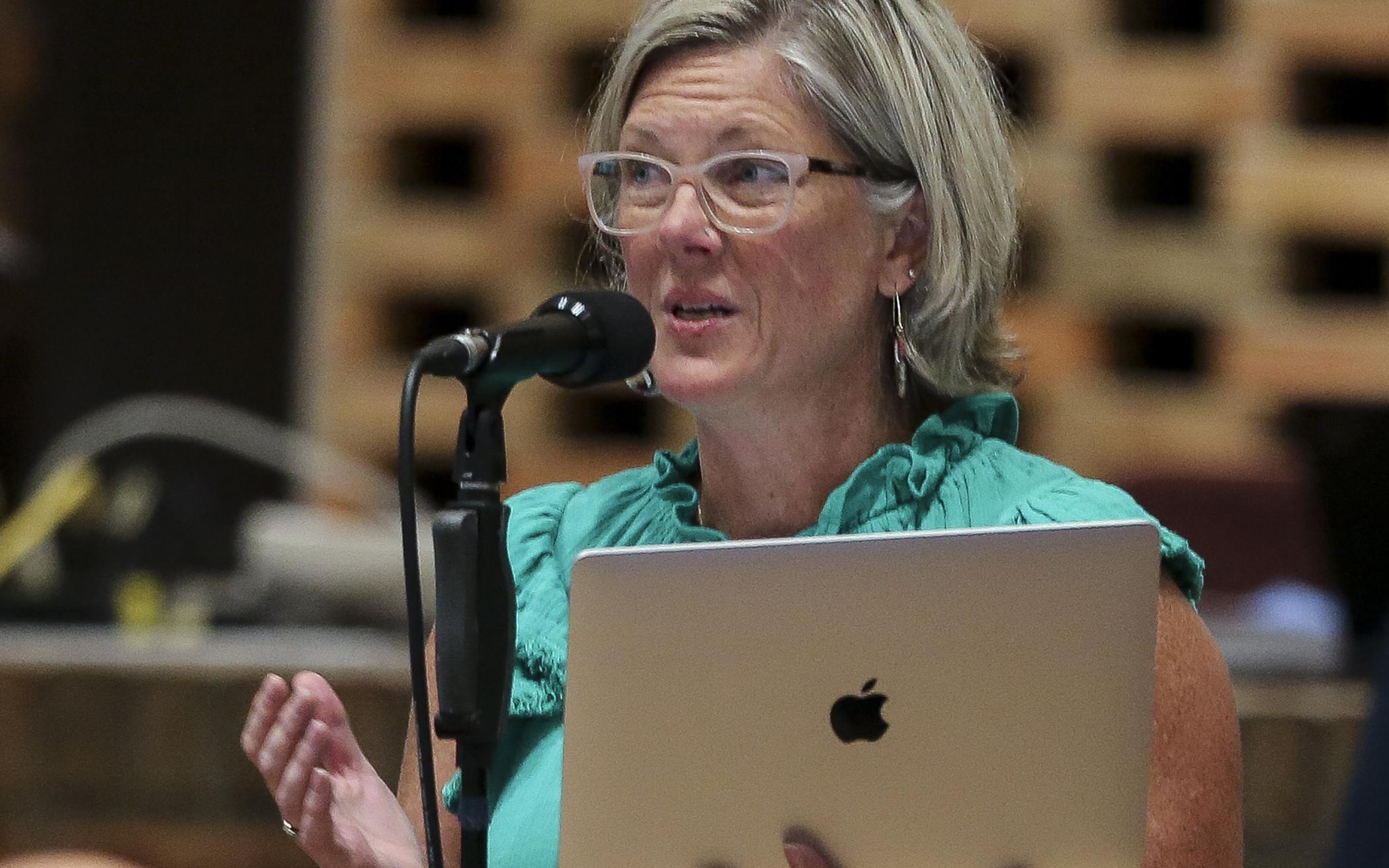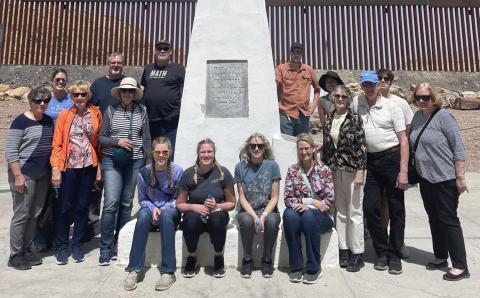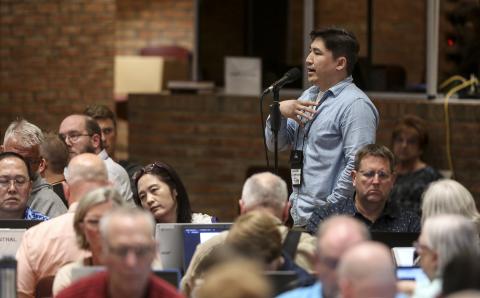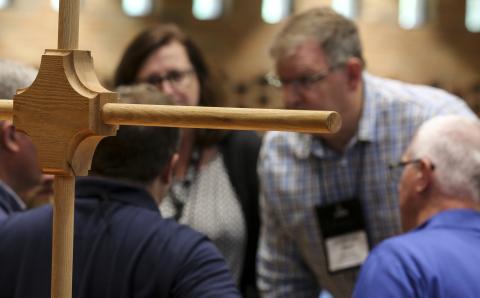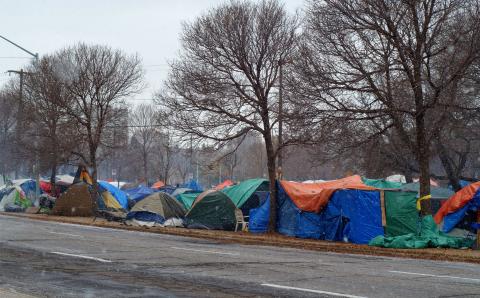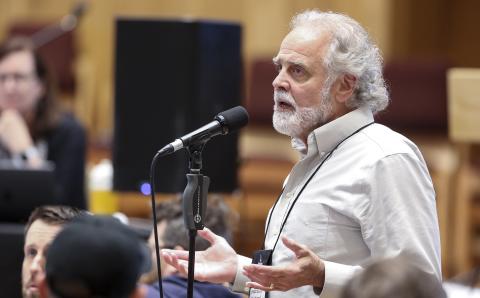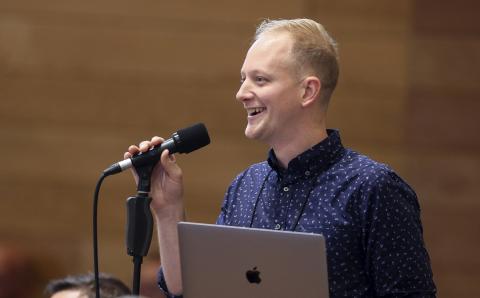Synod 2023 approved a change to the Church Order that could result in fewer deacons serving at future synods. The change was initiated by Synod 2022.
Presently, each classis (regional group of churches) must appoint a minister, an elder, a deacon, and a fourth delegate of any office to synod. Deacons were first appointed to Synod 2016, and deacon advisers were appointed at the two synods before that.
Church Order Article 45 will now read that “ordinarily” a minister, elder, deacon, and other officebearer will be delegated, and that “a classis may send no more than two delegates bearing the same office.” So in effect, any classis could choose to send two ministers and two elders to synod, resulting in less deacon representation.
“We’re trying to aim for having all four spots of delegation full, so it gives classes more freedom to delegate accordingly,” said Ryan Braam, reporter for the advisory committee that dealt with the church order change.
It is also true that, with the change, a church could send two deacons along with elders or ministers, but typically more deacon spots have remained vacant. At Synod 2023, there were seven deacon vacancies and one elder vacancy.
Ron Vandenbrink, director of Diaconal Ministries Canada, was asked to speak about the potential implications of the change to Church Order. “We feel that representation by deacons at synod is crucial,” he said. “Deacons are the people who are most involved (in the hands-on work of the church.)”
“This document will be used to remove deacons from the assembly,” said Todd Ritzema, Classis Grand Rapids North. “Attendance (by deacons) has improved over time, so there is no need to make this change."
“We’re not recognizing the unique gifts of deacons,” said Peter Bulthuis, Classis Hamilton. “We have a magnificent network of deacons. We need to find ways to highlight their work.”
Several delegates argued that deacons are needed to add diversity to synod.
“It took 53 years of work to get deacons at the table,” said Heather Strooboscher, Classis Grand Rapids North, noting that she served on a task force that helped bring deacons to synod. “One of the arguments is that it’s hard to find deacons to attend synod meetings. Hard work is hard, and we need to work hard to include marginalized voices at the table.”
“Studies have shown that in solving complex problems, diverse groups consistently outperform teams of likeminded experts,” said Heidi Sytsema, a deacon delegate from Classis Muskegon. “We’re dealing with complex problems at synod. … We need deacons present here.”
“The point of diversity can be viewed from two different angles,” said Braam, noting that some “ethnic minority classes have had a harder time finding deacons, so this change (could) give them better representation.”
Synod 2023 is meeting June 9-15 at Calvin University in Grand Rapids, Mich. Find daily coverage from The Banner news team at thebanner.org/synod. Visit crcna.org/synod for the synod schedule, webcast, recordings, photos, committee reports, and liveblog. Synod is the annual general assembly of the Christian Reformed Church.
About the Author
Roxanne VanFarowe is a freelance writer who claims both Canadian and American citizenship and grew up in the Christian Reformed Church. She is a member of Blacknall Presbyterian Church in Durham, North Carolina.

